Young Researchers’ Innovative and Original Approaches to Solve the Problems of Climate Change and the SDGs
- English (Simultaneous interpretation)
- Climate Change, SDGs
Japan’s “Environment Research and Technology Development Fund”, allocated by the Environmental Restoration and Conservation Agency (ERCA), supports environmental research conducted by universities, research institutes, and other institutions. ERCA promotes research and development in almost all environmental fields, responding to climate change problems, realising a sound material-cycle society, and coexisting with nature. It is vital to support awareness among the youth, who represent future generations, so recent focus has been put on training young researchers about the “climate crisis”, as a step forward in solving the biggest problem facing humankind. This session will review three studies conducted by young researchers (40 years old or younger) who received funding, with the aim of contributing to solutions to climate change and achieving the SDGs. The first enhances the feasibility of lifestyle change and environmental policy by using an innovative integrated evaluation model to evaluate the path to carbon neutrality by 2050. The second study looks at the next-generation energy source of ammonia and proposes an innovative process that simultaneously performs seawater desalination, power generation, and ammonia (fertilizer / energy carrier) synthesis using solar energy of deserts below sea level. The third study is original research supporting the creation of “local SDGs” by local governments, where further SDG expansion is required and promotion of efforts is indispensable.

This session is held in cooperation with the Environmental Restoration and Conservation Agency (ERCA).
Environmental Restoration and Conservation Agency (ERCA): https://www.erca.go.jp/
Executive Director at Environment Restoration and Conservation Agency
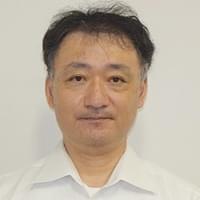
KAWAKAMI Tsuyoshi
Executive Director at Environment Restoration and Conservation Agency
Mr.Kawakami, Executive Director at Environment Restoration and Conservation Agency, joined MoEJ (Ministry of the Environment Japan) in 1989 and worked as a Head of Office for Environment and Economic Policy Research, Head of Division in Nature Conservation Bureau, etc. He was also in charge of Environmental White Paper of Japanese Government for many years. His wide working experience includes International Organization (OECD), Local government, Academic fields (Professor at Sophia University),
etc. From 2019 to 2021, he worked for the IGES as a special director for integrated climate change issues and lead a project "A Net Zero Society -2050 Japan-".
Professor Emeritus of the University of Tokyo
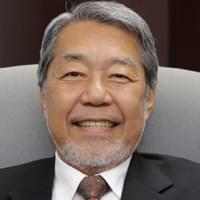
YASUOKA Yoshifumi
Professor Emeritus of the University of Tokyo
Dr. YASUOKA Yoshifumi received the B. Eng., M. Eng. and Ph. D degree in applied physics from the Univ. of Tokyo. He was with the National Institute for Environmental Studies (NIES) from 1975 to 1998, serving as a researcher, a senior researcher, and a Director of the Center for Global Environmental Research. In 1998 he moved to the University of Tokyo as a Professor at the Institute of Industrial Science. In 2007 he moved to NIES, and served there to 2011 as an Executive Director. He was also concurrently appointed to a Director of the Center of Environmental Remote Sensing, Chiba University since 2016 to 2018. He is currently with Japan Science and Technology Agency as a Research Supervisor. His major research field is environmental remote sensing.
Associate Professor, Department of Environmental Engineering, Kyoto University
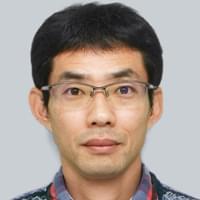
FUJIMORI Shinichiro
Associate Professor, Department of Environmental Engineering, Kyoto University
Shinichiro Fujimori is an associate professor at Kyoto University, Department of Environmental Engineering. He is also a visiting researcher at NIES and IIASA. Dr. Fujimori’s main fields of scientific interest include integrated assessment modeling in climate change mitigation as well as its impact and adaptation. Dr. Fujimori is involved in development of AIM (Asian-Pacific Integrated Model) and the future emissions, energy, economy and land-use scenarios which are widely used by the climate research community. He is listed as a highly cited researcher in 2019 and 2020 by Clarivate for top 1% researchers in the research field and as the top of Japanese researchers in Reuter’s Hot list of most influential climate scientists.
Professor, Department of Architecture, Faculty of Engineering and Design, Hosei University
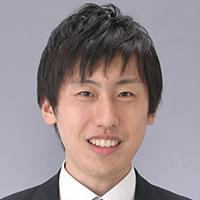
KAWAKUBO Shun
Professor, Department of Architecture, Faculty of Engineering and Design, Hosei University
He completed his Ph.D. in Engineering at the Graduate School of Science and Technology, Keio University in 2013. In April of the same year, he became an assistant professor at the Department of Architecture, Faculty of Design, Hosei University. After working as a full-time lecturer and associate professor, he became a professor in April 2021. He specializes in sustainability assessment of architecture and cities. In recent years, he has been conducting research on solutions to regional issues through the promotion of local SDGs. Major awards received include the Young Scientist Prize of the Commendation for Science and Technology by the Minister of Education, Culture, Sports, Science and Technology, and the Minister of the Environment Prize at the Green Purchasing Awards.
Assistant Professor, Graduate School of Energy Science/Hakubi Center, Kyoto University
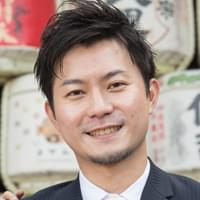
OGAWA Takaya
Assistant Professor, Graduate School of Energy Science/Hakubi Center, Kyoto University
He received his B.S. in Chemical Engineering from the University of Tokyo in 2009, M.S. in Chemical Engineering from the University of Tokyo in 2011, M.S. in Management of Technology from Tokyo Institute of Technology in 2013, and Ph.D in Environmental Chemistry and Engineering from Tokyo Institute of Technology in 2014. After working as a postdoctoral researcher at Tokyo Institute of Technology, Massachusetts Institute of Technology, and Stanford University, he has been on a tenure track position in Graduate School of Energy Science/Hakubi Center, Kyoto University since 2018. His research focuses on an efficient system for co-production of water, electricity, and ammonia based on renewable energy.






